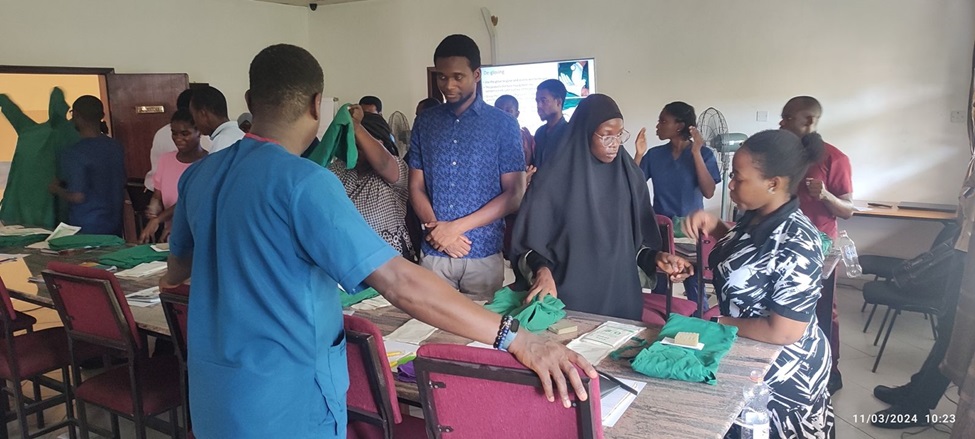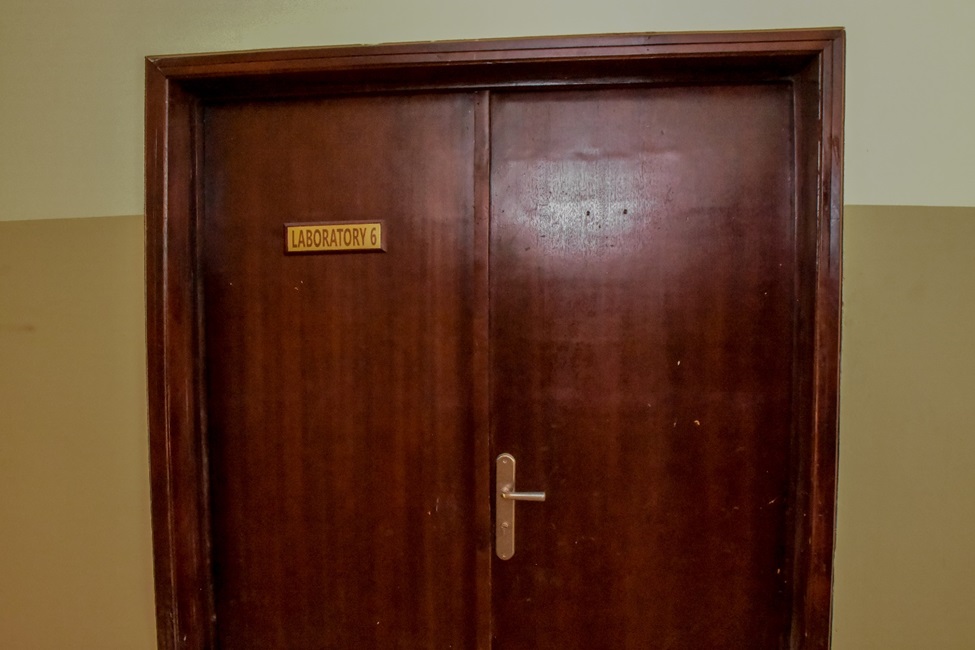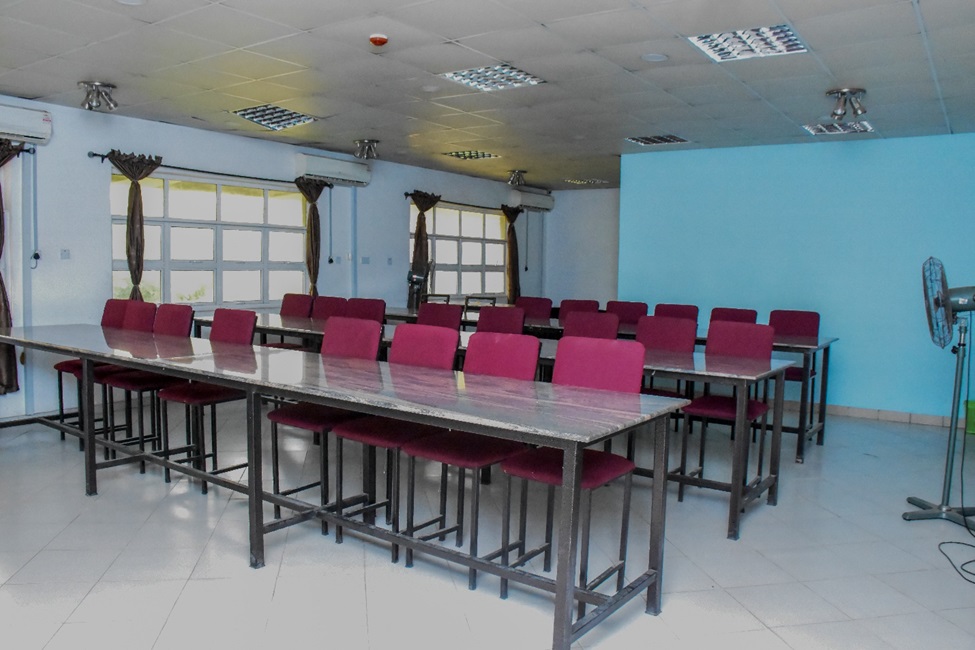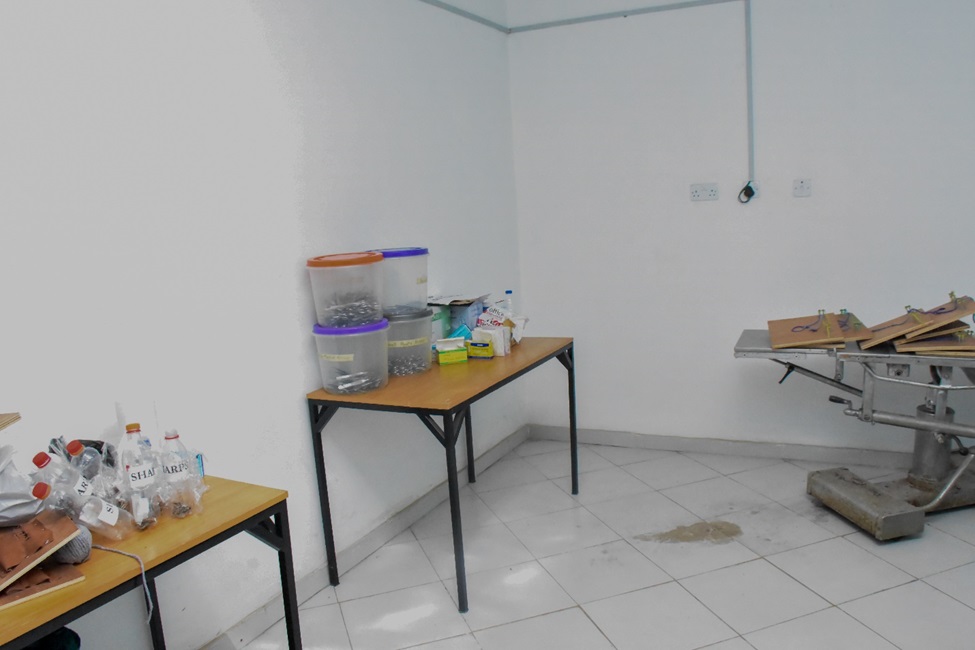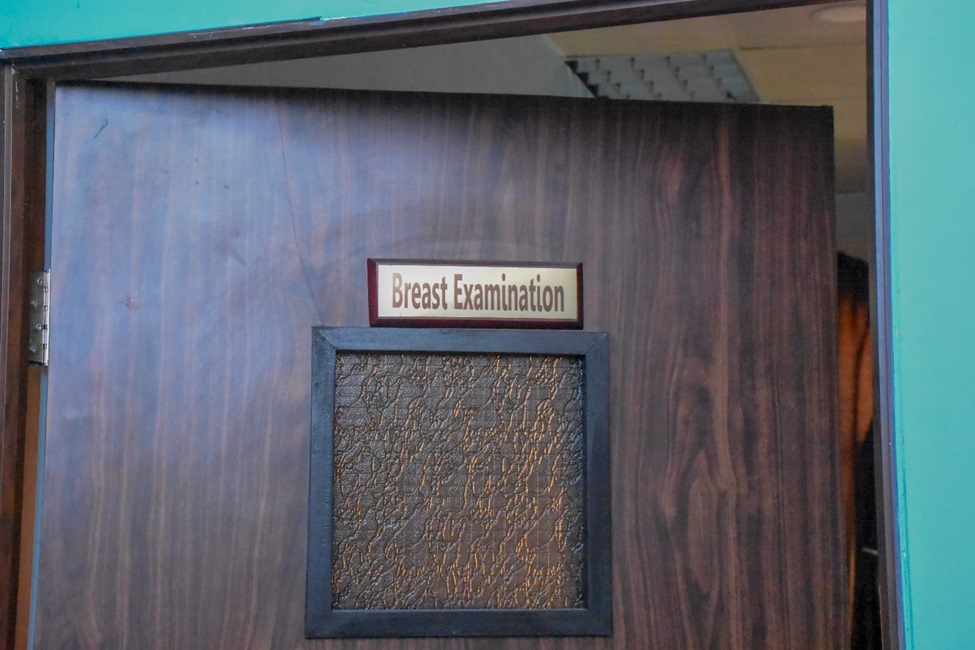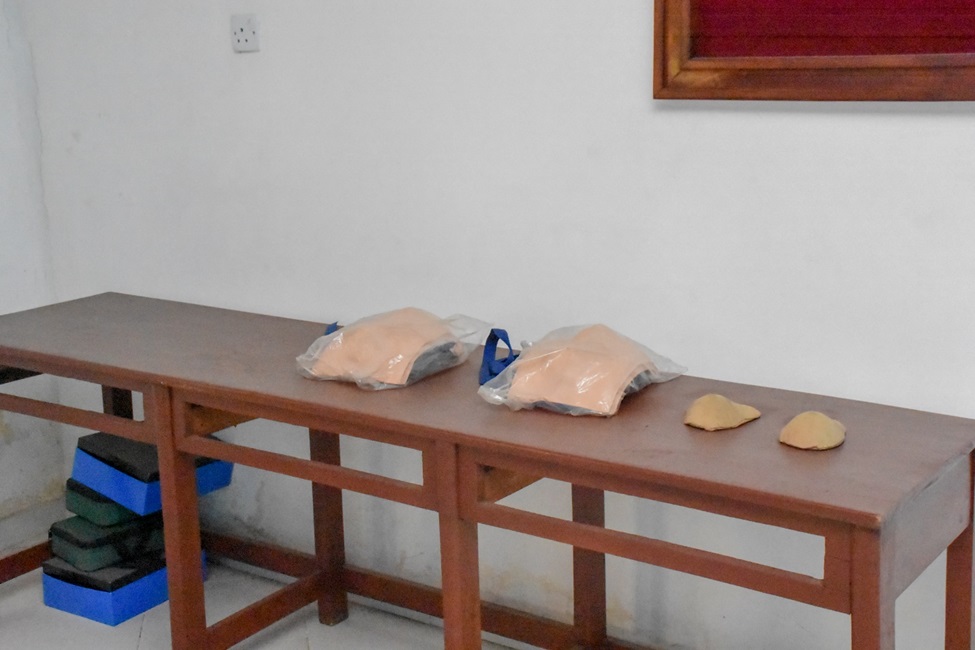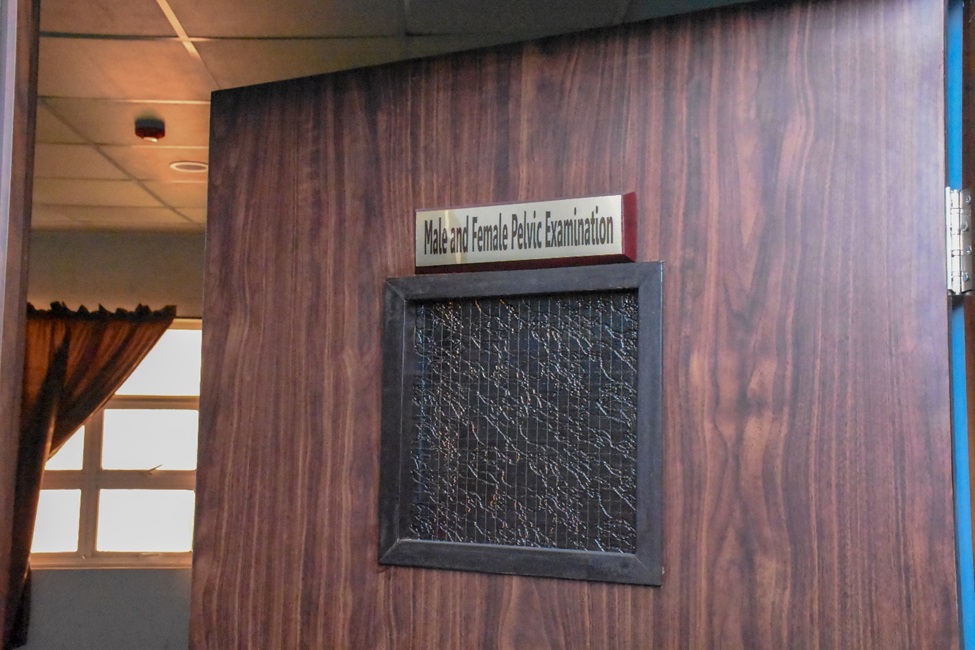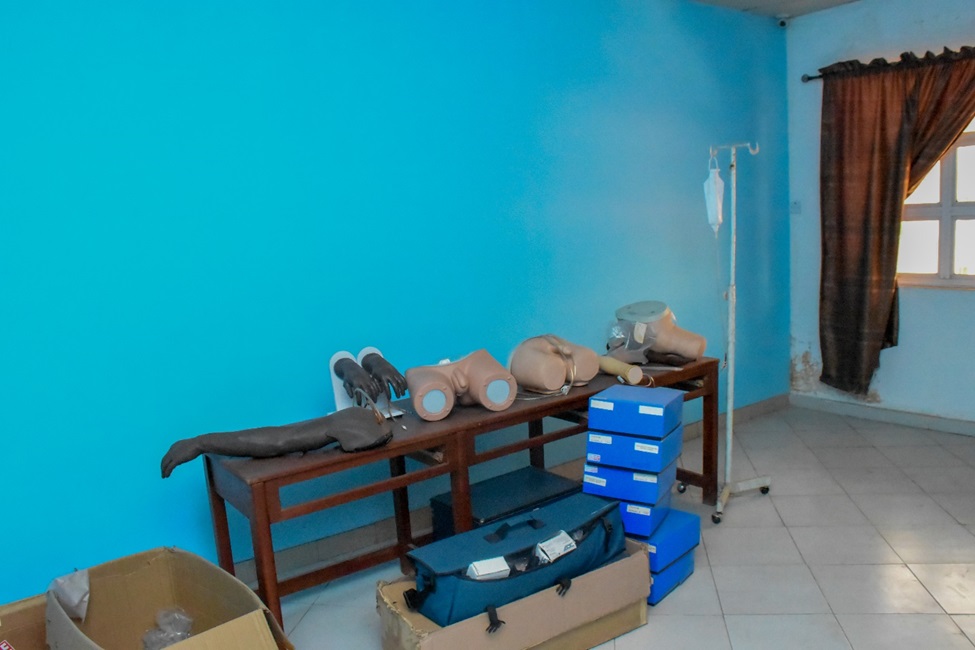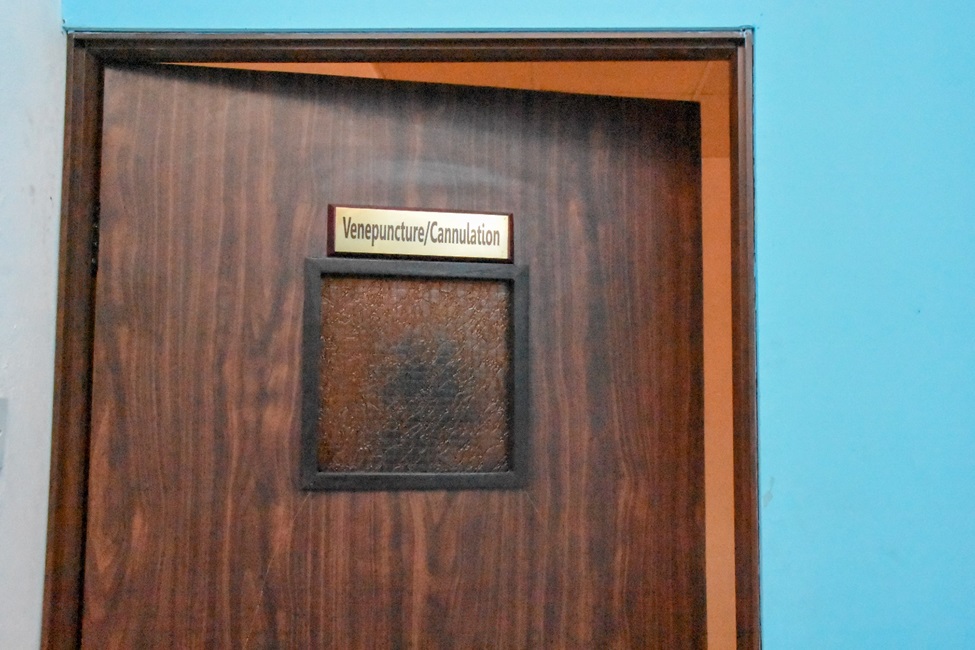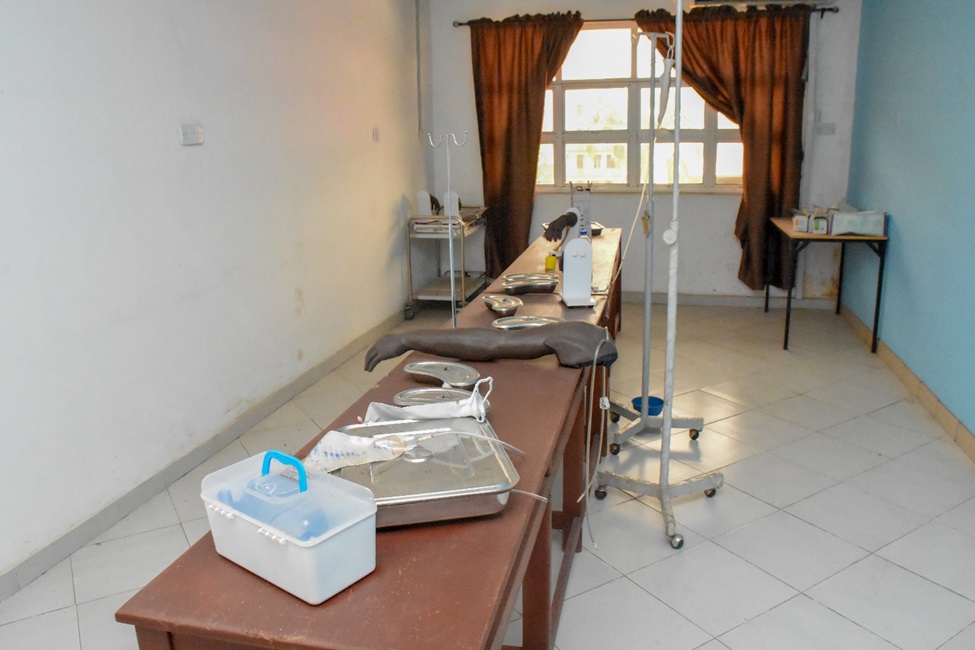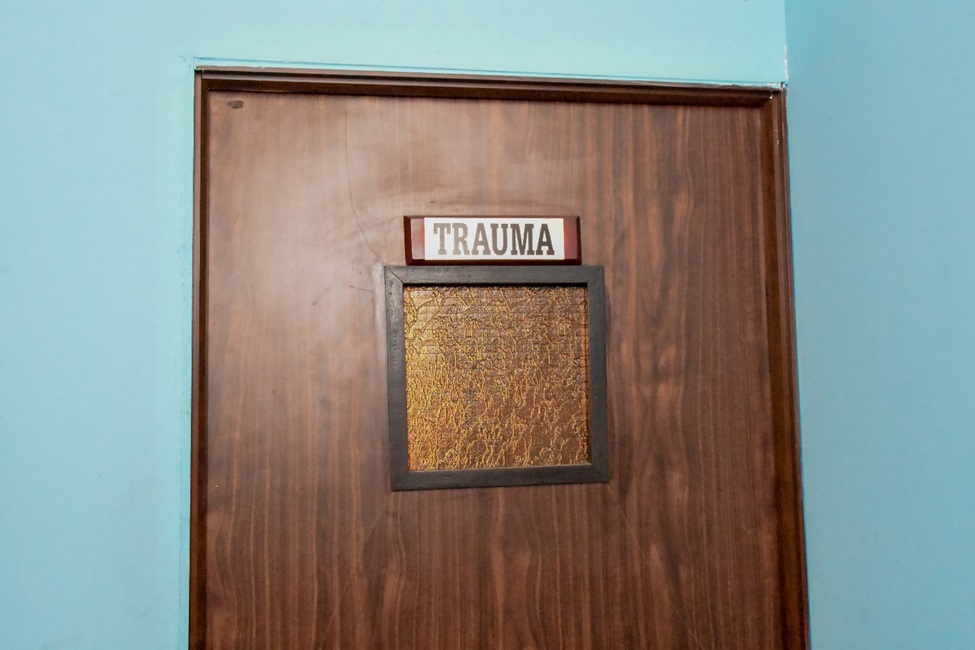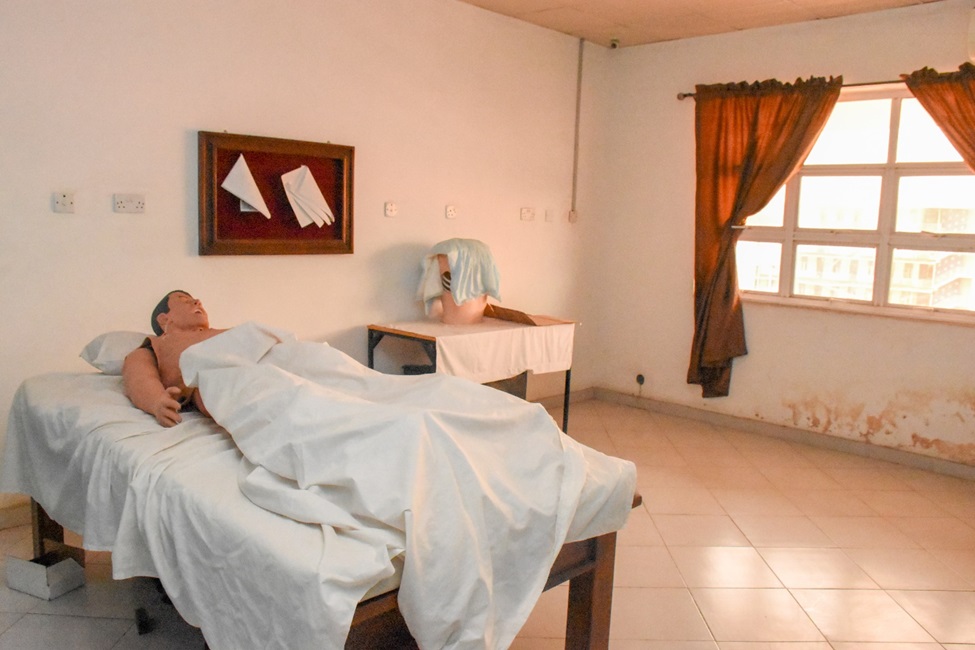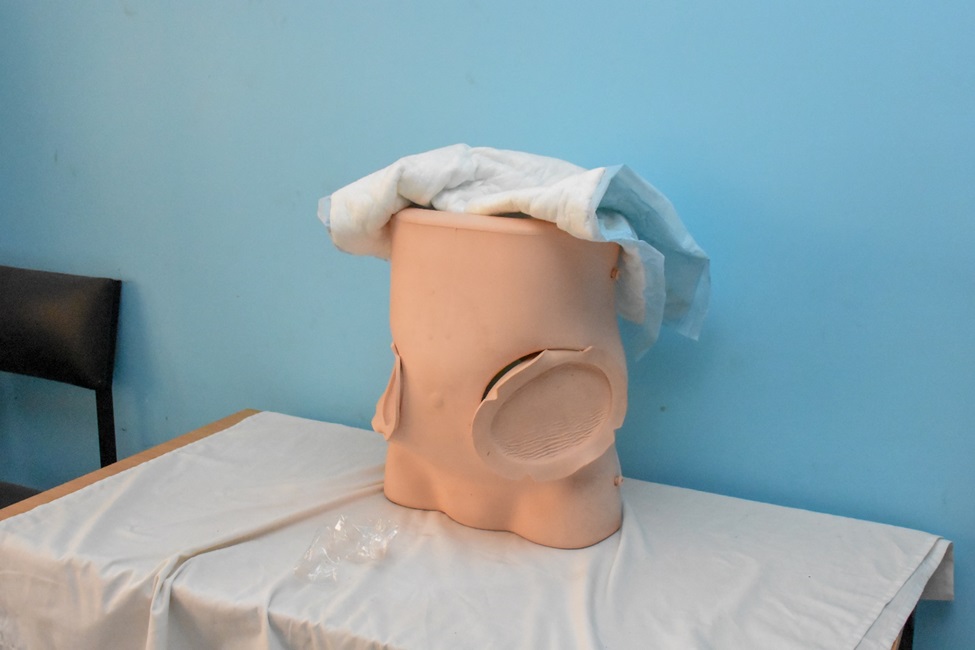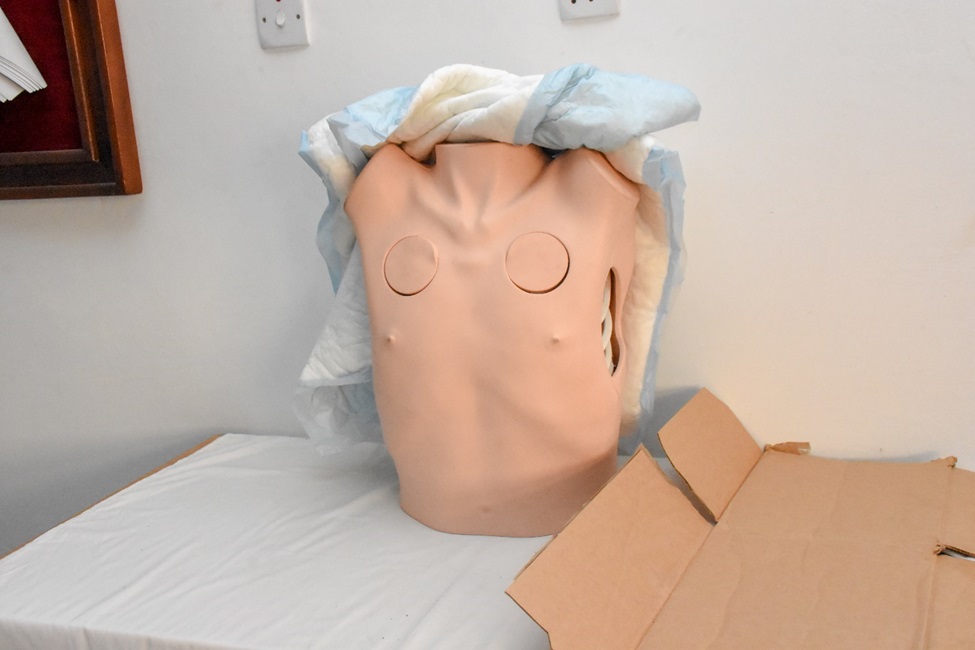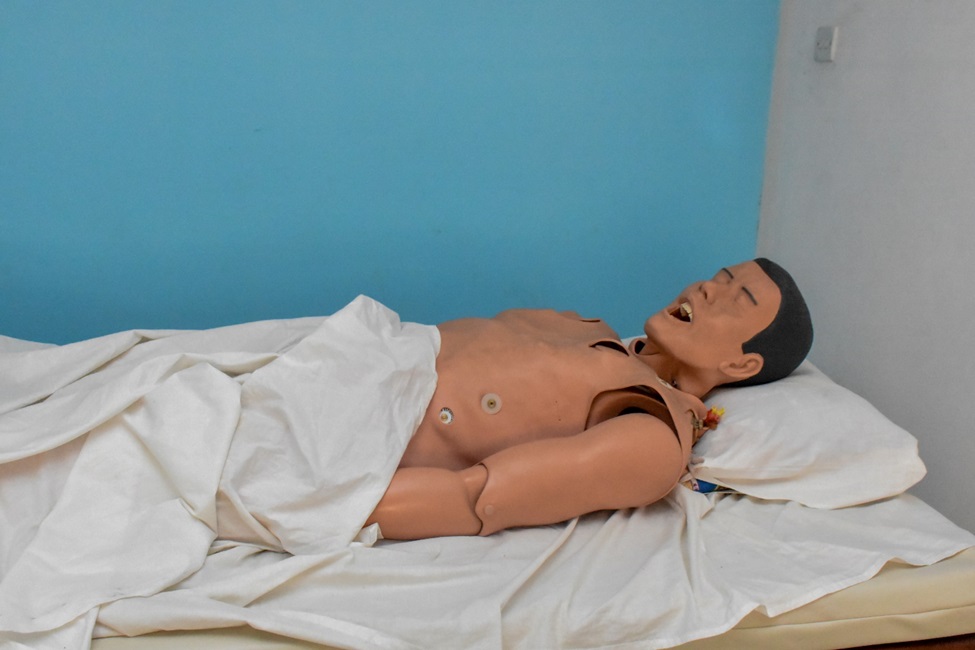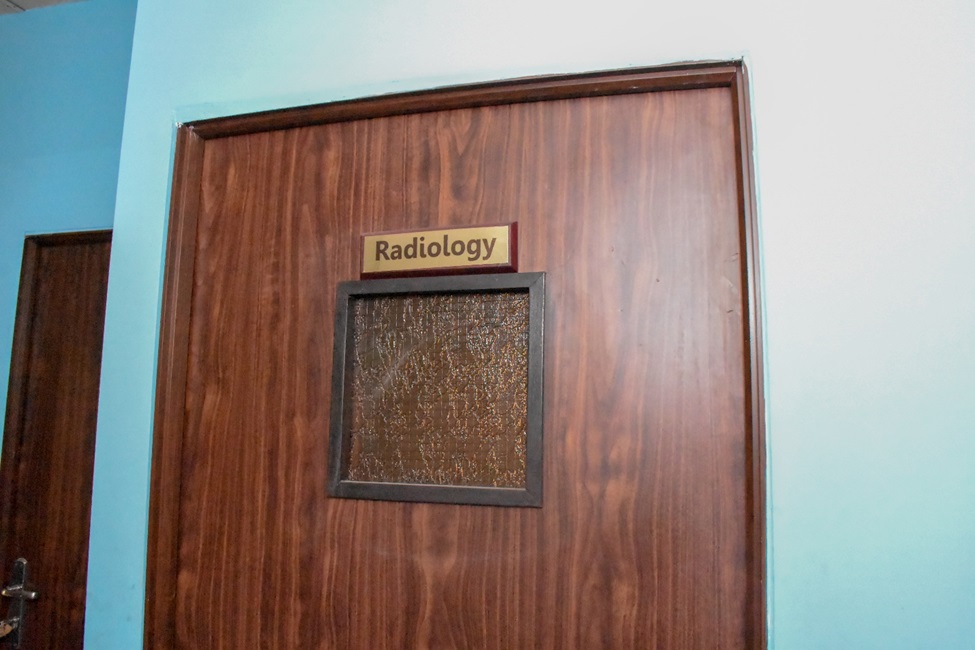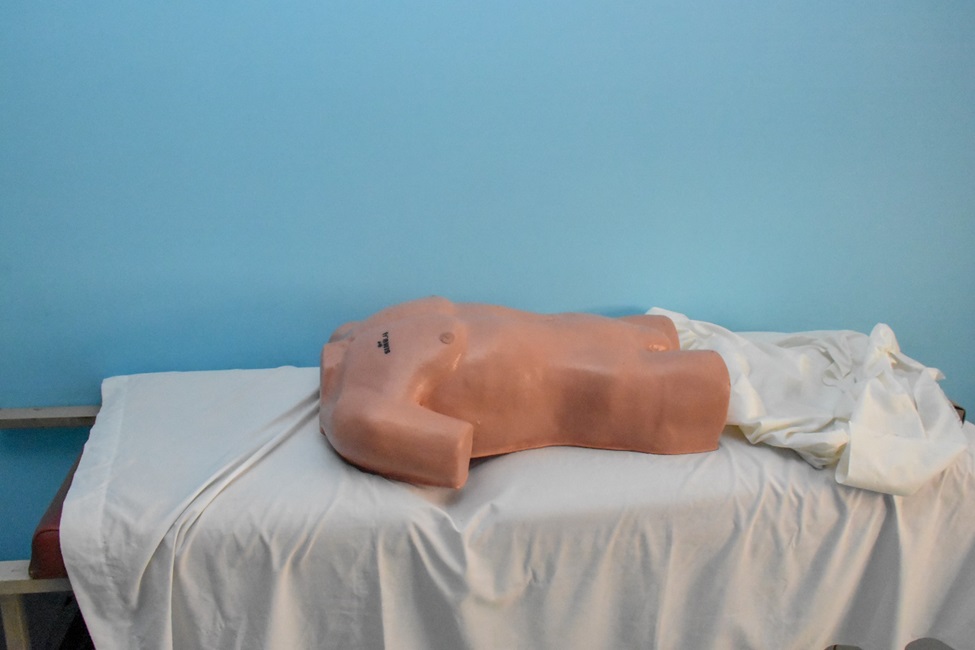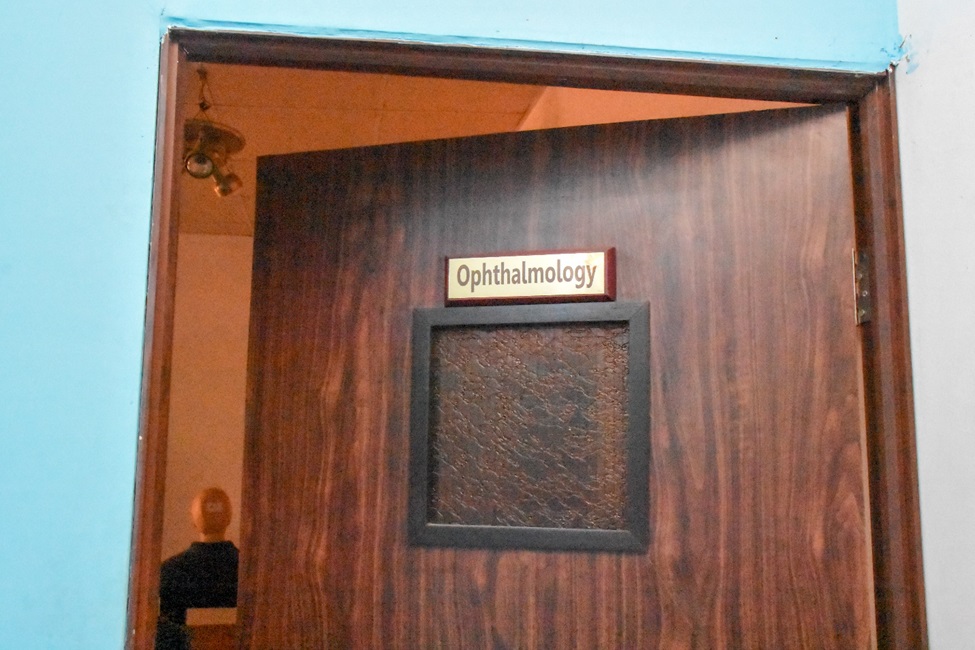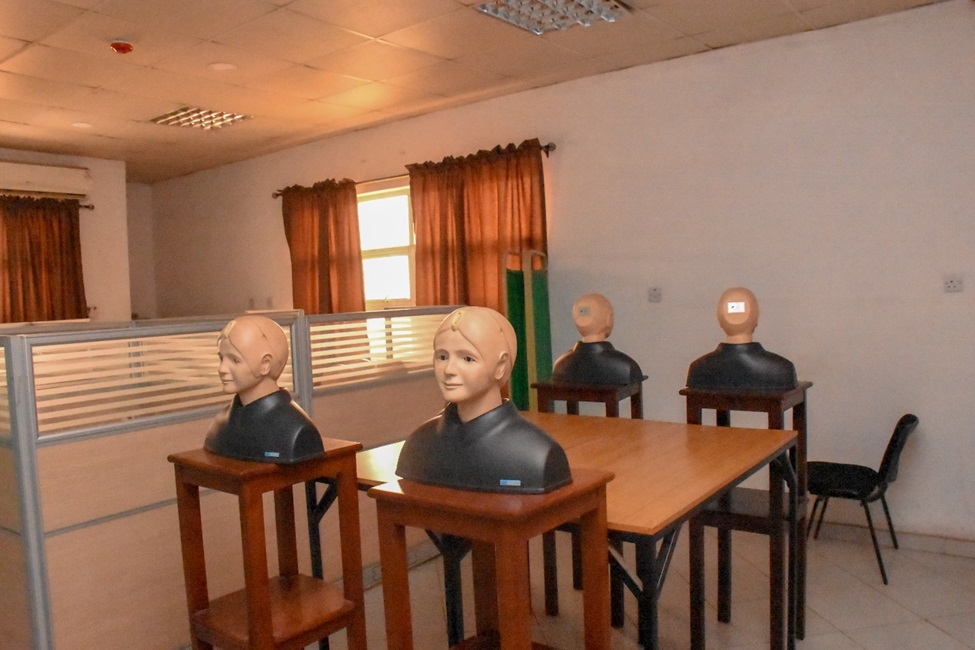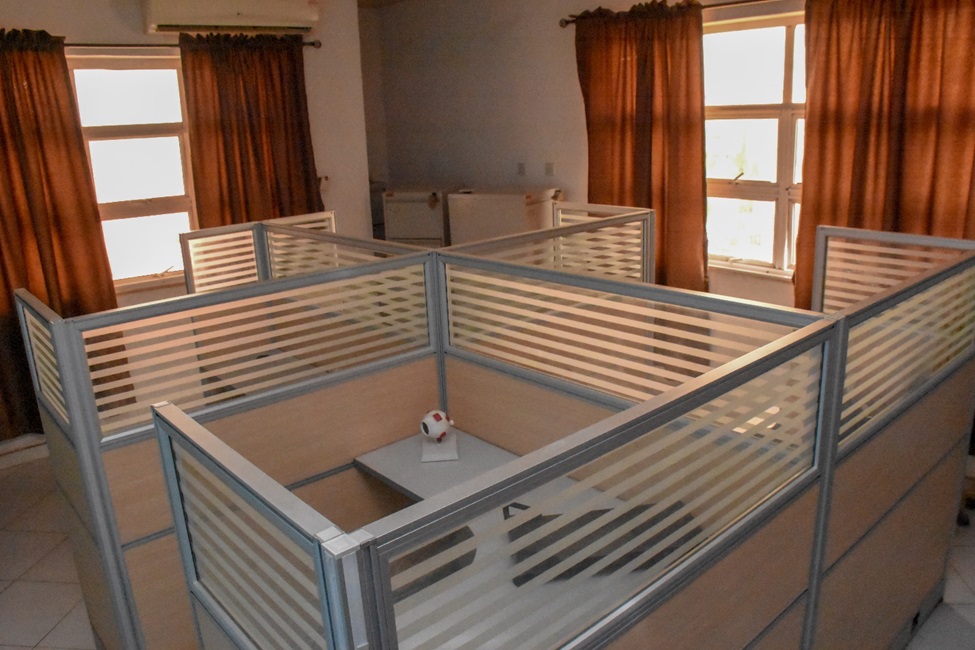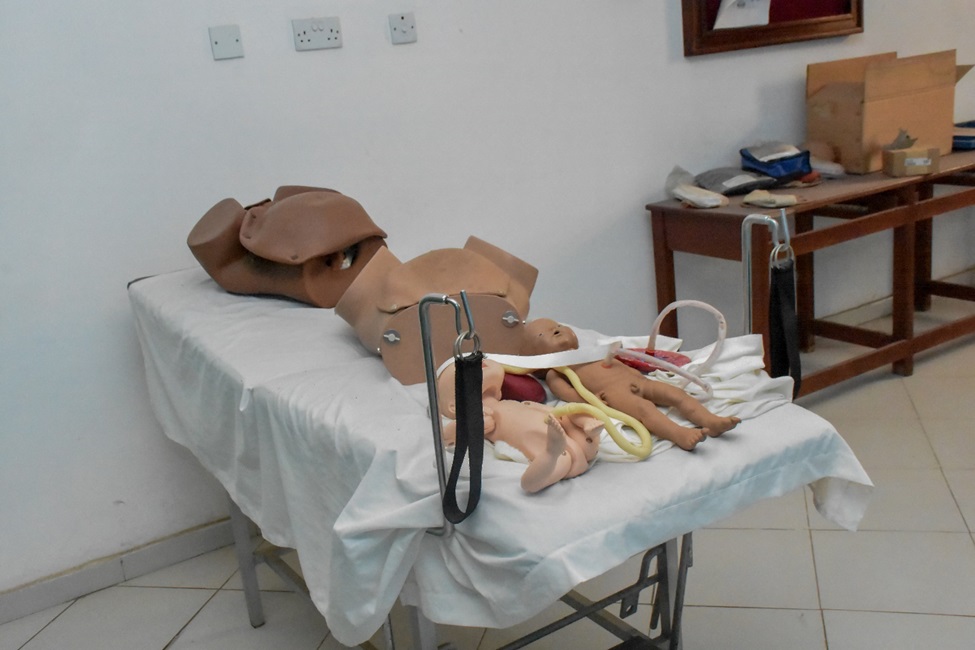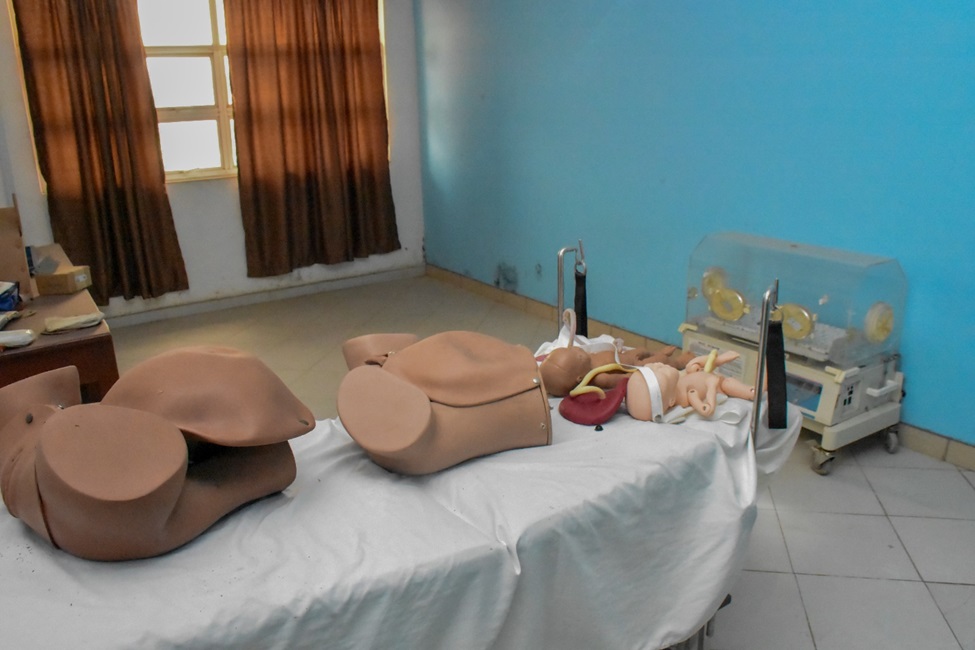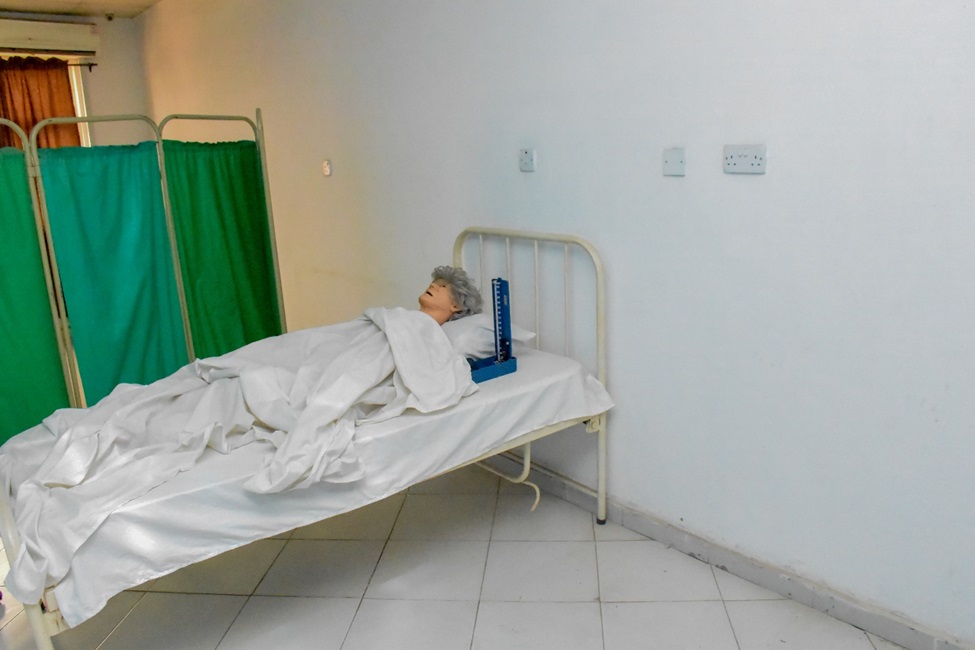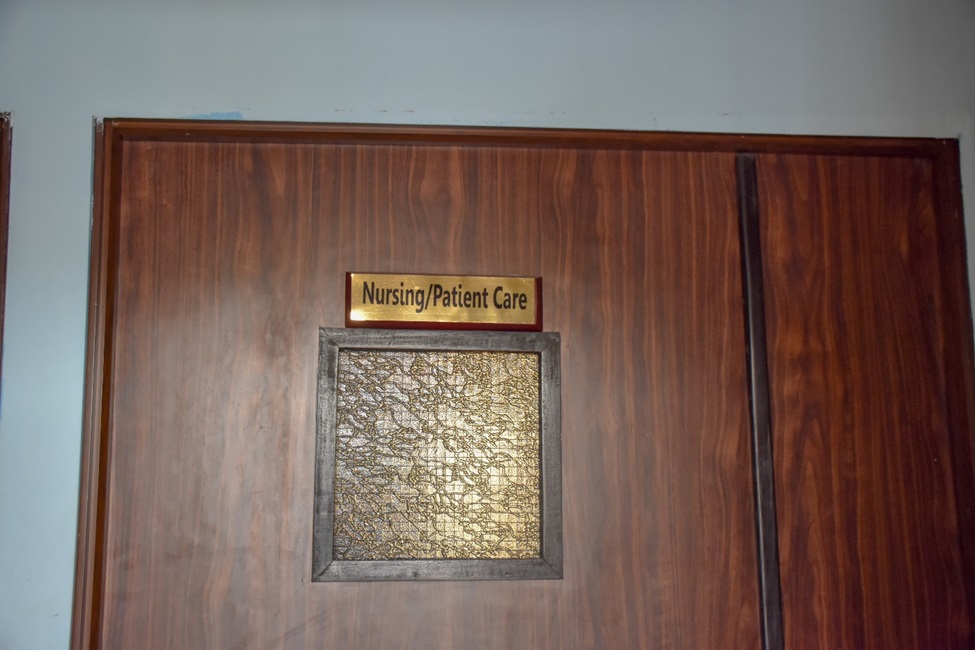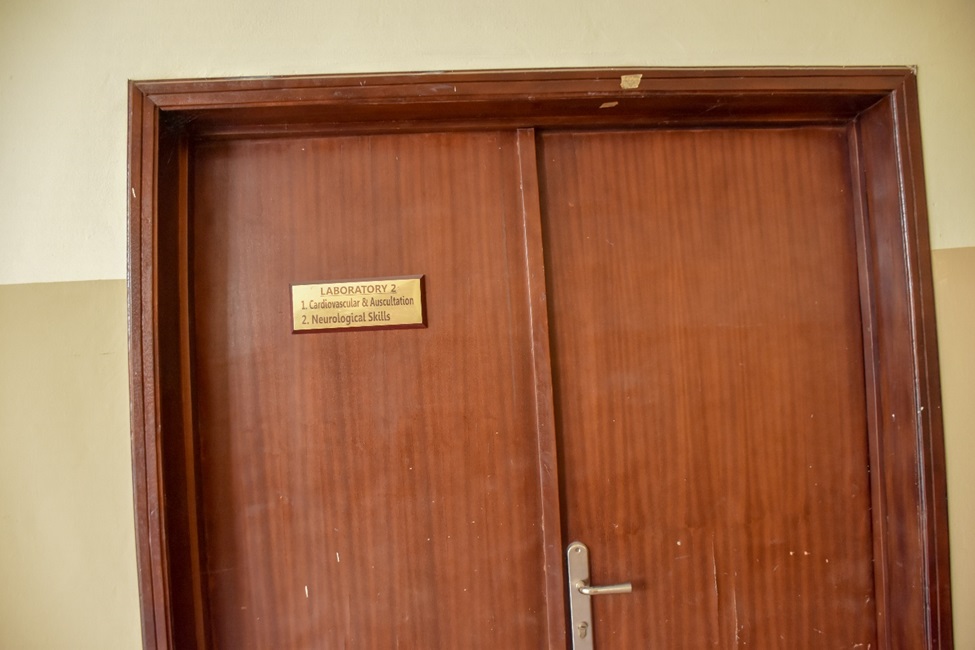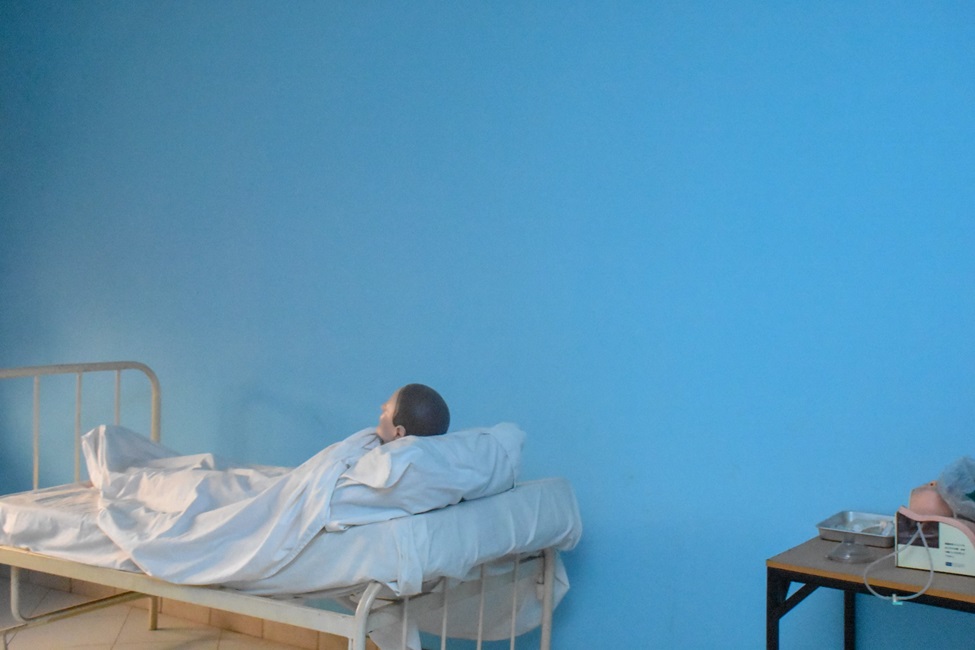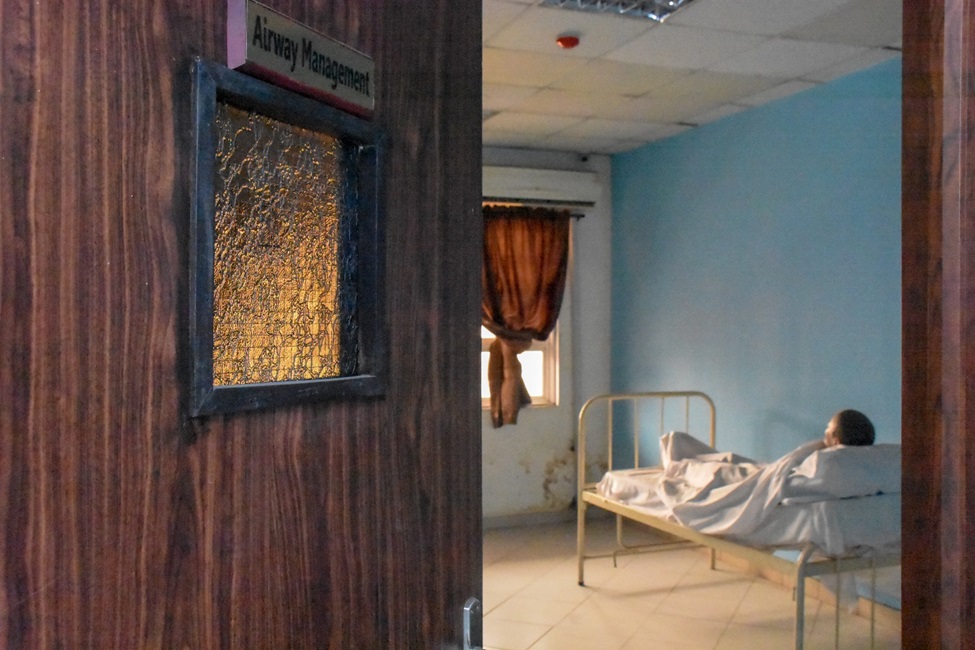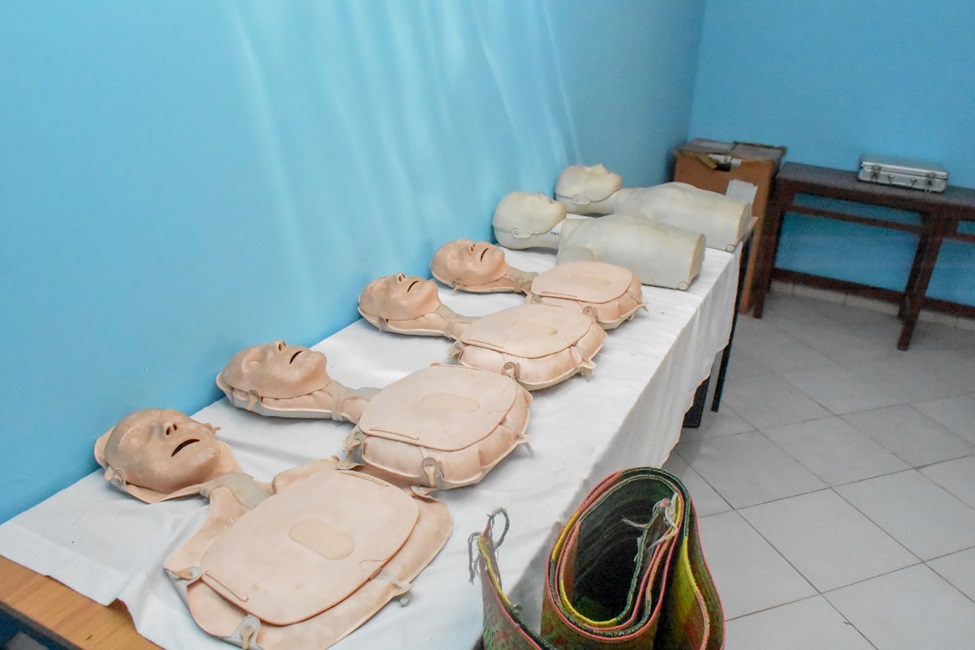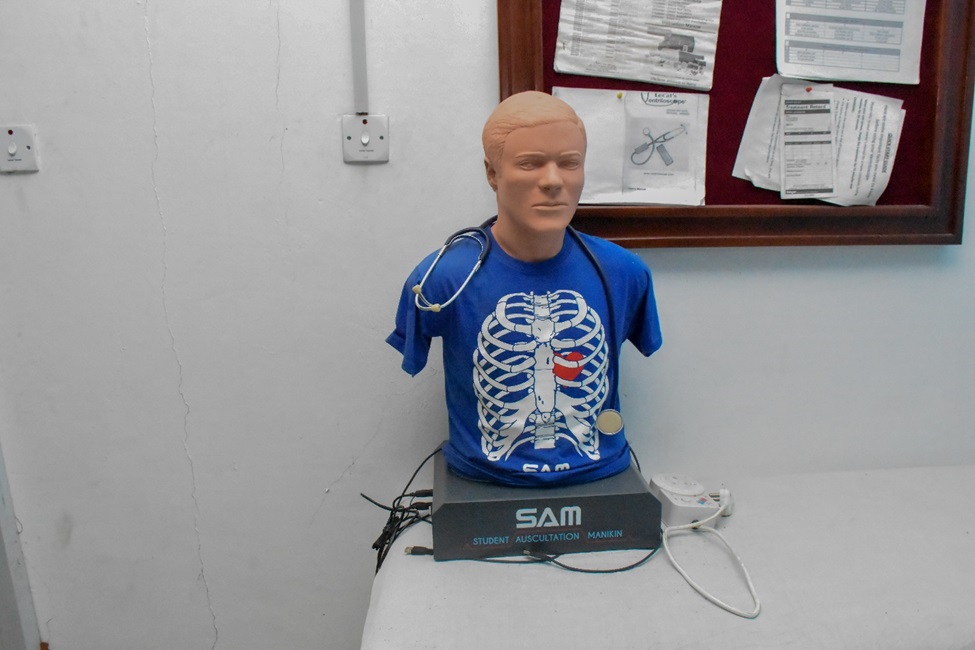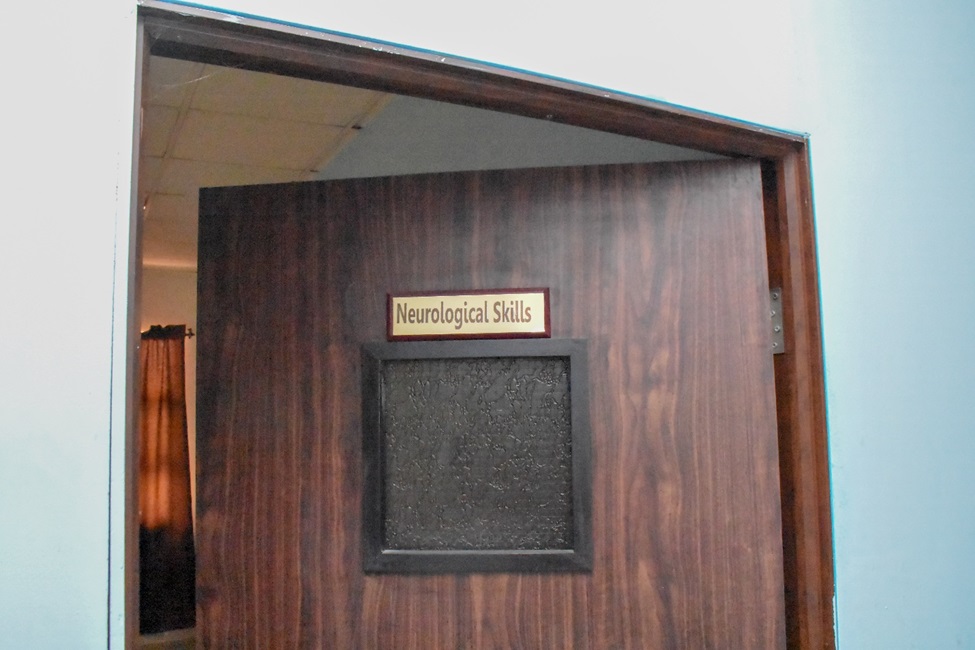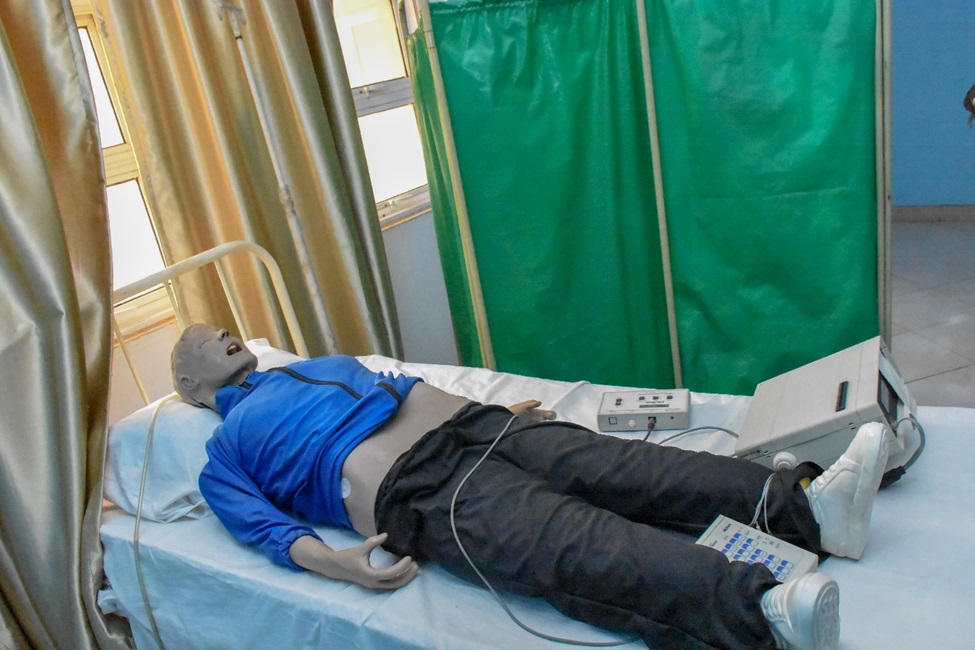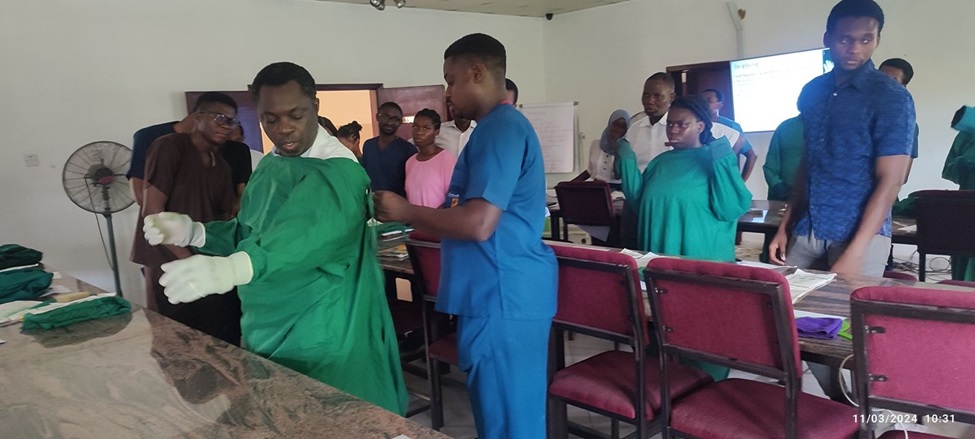After experiencing some setbacks, the Core Surgical Skills Course at the College of Medicine Education Unit (CMEU) has returned stronger than ever. Students recently completed the course as a big step in their medical education journey. Students who participated in the training showed great interest during practical sessions. They learned crucial skills like preventing infections and handling instruments. The return of the course was also well received by students in higher classes who missed it. This enthusiasm has led to plans for sessions for all students, ensuring everyone benefits.
Our media team sat with the Director of the College Medical Education Unit, Professor Augustine Adeolu, to discuss this development and what this means for the unit.
Professor Augustine Abiodun Adeolu is a highly distinguished Neurosurgeon and an esteemed faculty member at the University of Ibadan's College of Medicine. He has extensive expertise in complex spine surgery, skull base surgery, neurooncology, neuroendoscopy, and neurotrauma. He also possesses significant experience in vascular neurosurgery. As the Director of the College of Medicine Education Unit and the Head of the Department of Neurological Surgery at the University College Hospital, Ibadan, Professor Adeolu has been instrumental in advancing the field of neurosurgery through his clinical skills, research, and teaching.
Professor Adeolu's extensive training includes postgraduate education at the Obafemi Awolowo University Teaching Hospitals Complex and the University College Hospital, Ibadan. He has further honed his skills with specialised training at the University of Calgary/Foothills Hospital in Canada, Apollo Hospital in Chennai, India, and Ghent University Hospital in Belgium, where he earned a certificate in Neuroendoscopy. His commitment to continuous professional development underscores his dedication to mastering advanced surgical techniques and providing exceptional patient care.
In addition to his clinical and educational roles, Professor Adeolu has held several prestigious positions, such as the Editor-in-Chief of the Archives of Neurosurgery in Africa, Visiting Chief Consultant Neurosurgeon to the National Hospital in Abuja, and President of the Nigerian Society of Neurological Sciences. His leadership extends to various administrative and advisory capacities, including Chairmanship of the Management Board of OLA Catholic Hospital in Oluyoro, Ibadan, and the Parish Pastoral Council at the Church of the Ascension in Bodija, Ibadan.
Professor Adeolu is also a prolific researcher and educator, with over 100 journal articles published in reputable scientific journals and more than 40 scientific papers presented at conferences worldwide. His contributions to the development of neurosurgery in the West African Sub-region are significant, and he plays a key role in training future neurosurgeons. Outside his professional accomplishments, he is actively engaged in farming, with expertise in crop planting and livestock production, and is dedicated to religious charity activities.
Below is the full text of the interview:
Thank you, sir, for taking out time to speak to us. Could you provide more insight into the training programme, including its objectives and target beneficiaries?
Professor Adeolu Augustine: Thank you for your question. Let me start by saying that the College of Medicine Education Unit is a division within the College of Medicine, University of Ibadan, and the unit comprises six subdivisions, with the Clinical Skills sub-unit being one of them. The primary role of this unit is to coordinate various clinical skill sets for medical students. While primarily targeting undergraduate students in the medical line within the College of Medicine, nursing students, physiotherapy students, and other students within the College can also benefit from the training.
The training in question is called the Core/Key Surgical Skills. Before the unit was established, there were two of such training programmes in Nigeria. The first training ever done in Nigeria was hosted by the College of Medicine, University of Ibadan, facilitated by the Royal College, United Kingdom, and sponsored by Johnson and Johnson Internationals. The first training wasn’t only for the students of the College of Medicine, University of Ibadan. Students from Obafemi Awolowo University were also present. It also happened at the University of Lagos around that time and in Ghana.
Professor E.O. Olapade Olaopa FAS, the former Provost (11th Provost), coordinated the second training about ten years ago. The unit was brought up so that the goals of the revised MBBS curriculum could be met. In conjunction with this, the dry lab was created. Dry lab means the use of Skin pads instead of the skins of animals. All experiments done in the surgical laboratory are done in the dry lab apart from using animals as specimens for the experiments.
Before COVID, there were about 700 students who had passed through the training. However, due to the pandemic, the training had to be stopped. After the pandemic, the training could not resume due to some logistic problems like finances. So, this is the first training under the administration of the present Provost and Director. Interestingly, this is my third year as the director as well as the last year of the Provost in office. So, this recent training session marks the first one under our administration.
The curriculum covers various topics essential for medical practice, including infection prevention in the operating room, instrument handling, proper scrubbing techniques, gowning, mask-wearing, knot tying, and wound handling. These topics are taught through a combination of demonstrations and videos, ensuring a comprehensive learning experience. Pre-tests are conducted to assess students' understanding, and practical sessions complement theoretical learning.
The response from students has been overwhelmingly positive. It’s like catching them young and laying a solid foundation for their medical careers. Dr. Ajibola Oladiran, Othopaedic Surgeon, the immediate coordinator of the sub-unit, and Prof. Bolutife Olusanya, (Ophthalmologist), the Head of the Clinical Skills Laboratory, have played pivotal roles in launching this training programme. I am very grateful to them and also to the Provost for her support towards our goal of optimising all laboratory facilities for the students' benefit in the coming months.
Sir, can you clarify the academic level of the participating students?
Professor Adeolu Augustine: The training primarily targets students at the 400-level, preparing them for Surgery II posting. However, due to delays in recent years, students at the 500 and 600 levels will also participate.
Are there specific criteria for student participation?
Professor Adeolu Augustine: There are no specific selection criteria, all students are eligible to benefit from the training sessions. Although the initial class will be combined; however, in subsequent sessions, the students will be divided into smaller groups for practical sessions.
What is your official designation within the unit?
Professor Adeolu Augustine: For clarity, the unit operates under the Provost's office and is overseen by a Director. I am the Director of the College's Medical Education Unit. Within the unit, there are six sub-units, each with its own committee chaired by different individuals. The heads of these sub-units are determined by the interests and expertise of the individuals involved. The sub-units are as follows Clinical Skills Sub-unit; Research and Statistics Sub-unit which is chaired by Dr. Akin Ojagbemi (Psychiatry); the E-learning Sub-unit chaired by Prof. Godwin Ogbole (Radiology); Pedagogy Sub-unit is chaired by Dr. Olukemi Tongo (Paediatrics); the Capacity Development and Training Sub-unit is led by Dr. Olushola Ibiyemi (Periodontology and Community Dentistry) and the Curriculum Sub-unit which is chaired by Dr. Funmilayo Olopade (Anatomy).
These sub-units play crucial roles in various aspects of medical education and training, contributing to the overall mission and objectives of the College of Medicine Education Unit.
Thank you so much, sir, for your time.
Professor Adeolu Augustine: Thank you for having me too.
Culled from the College Prospectus pages 102-105 https://www.com.ui.edu.ng/images/Faculties/College_Prospectus_2020-2022.pdf
The College Management realized the central role of teaching effectiveness in the production of quality health care professionals and to this end had been in the forefront of organising programmes of induction, seminars, and workshops to achieve this objective. Following some programmes of induction of fresh academics and seminars on some aspects of teaching effectiveness, recommendations were received for the institutionalization of capacity building programmes in all aspects of teaching. The College Management while adopting this proposal further realized the need for setting up of a unit to co-ordinate the College activities in achieving this goal. Hence, the need for setting up of such a unit for strengthening of teaching effectiveness under the office of the Provost.
Therefore, the Academic Board of the College of Medicine at its meeting of Monday, 12 September 2011 considered the proposal for the establishment of the College of Medicine Education Unit and recommended its approval to Senate. Senate at its meeting of Monday, 10 October 2011 approved the establishment of the Unit.
Pictures from the Core Surgical Skills Training
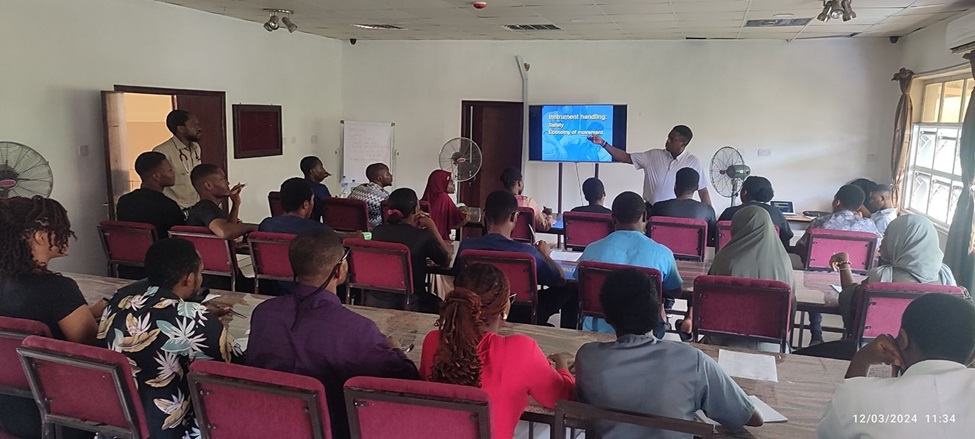
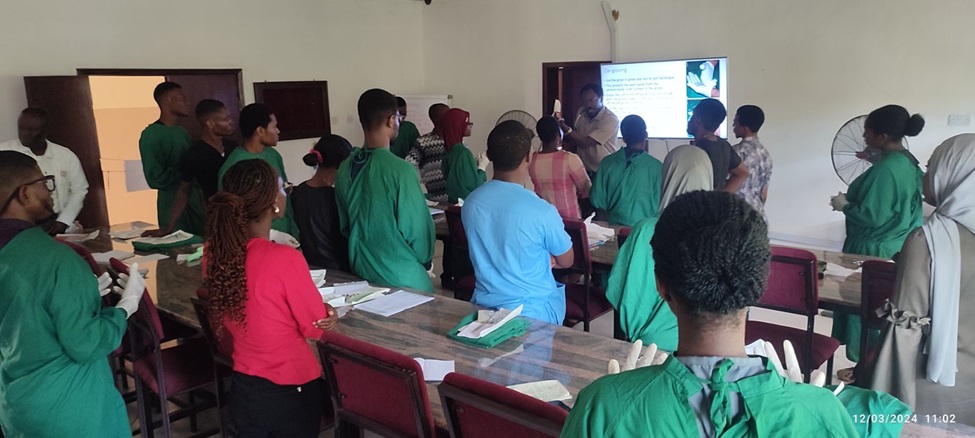
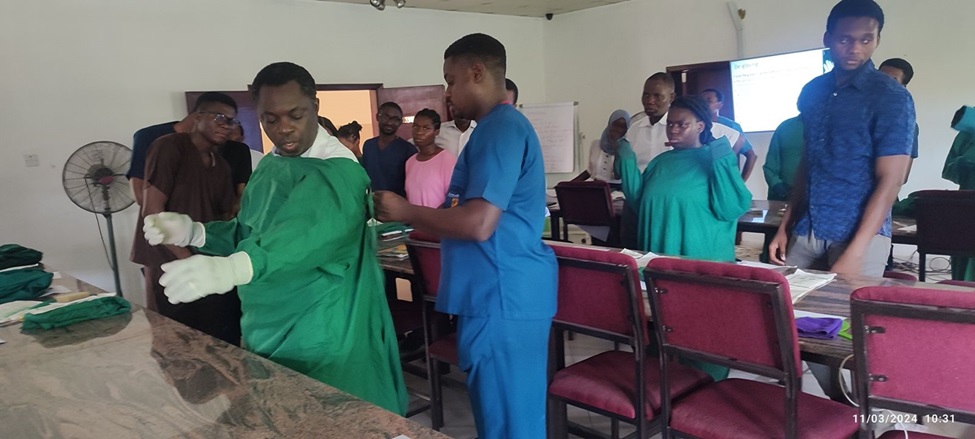 Professor Adeolu demonstrates a procedure
Professor Adeolu demonstrates a procedure
